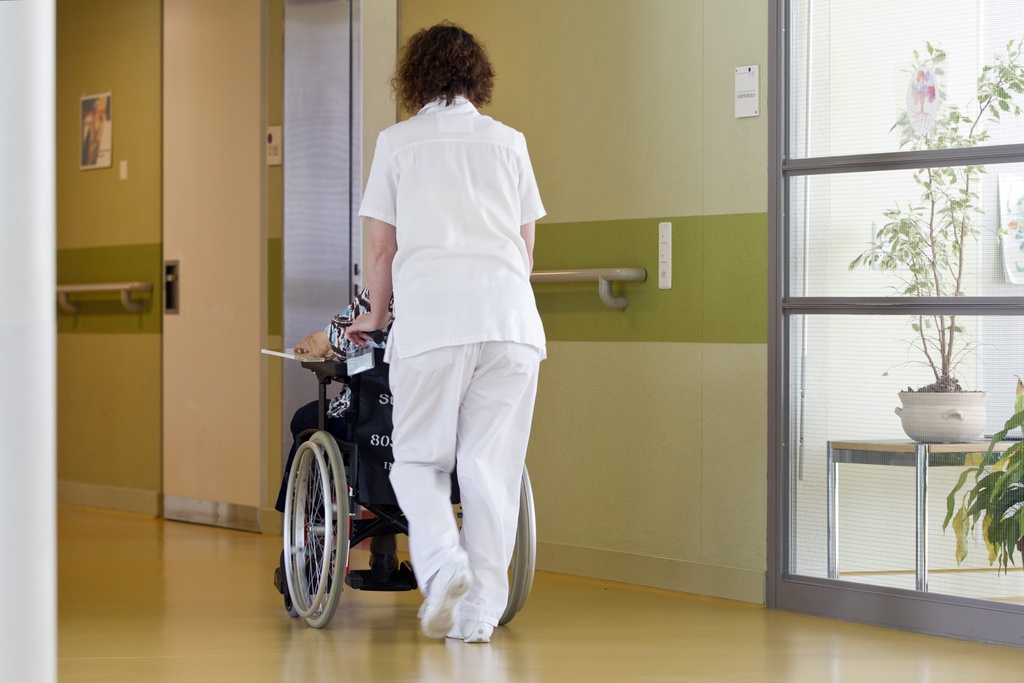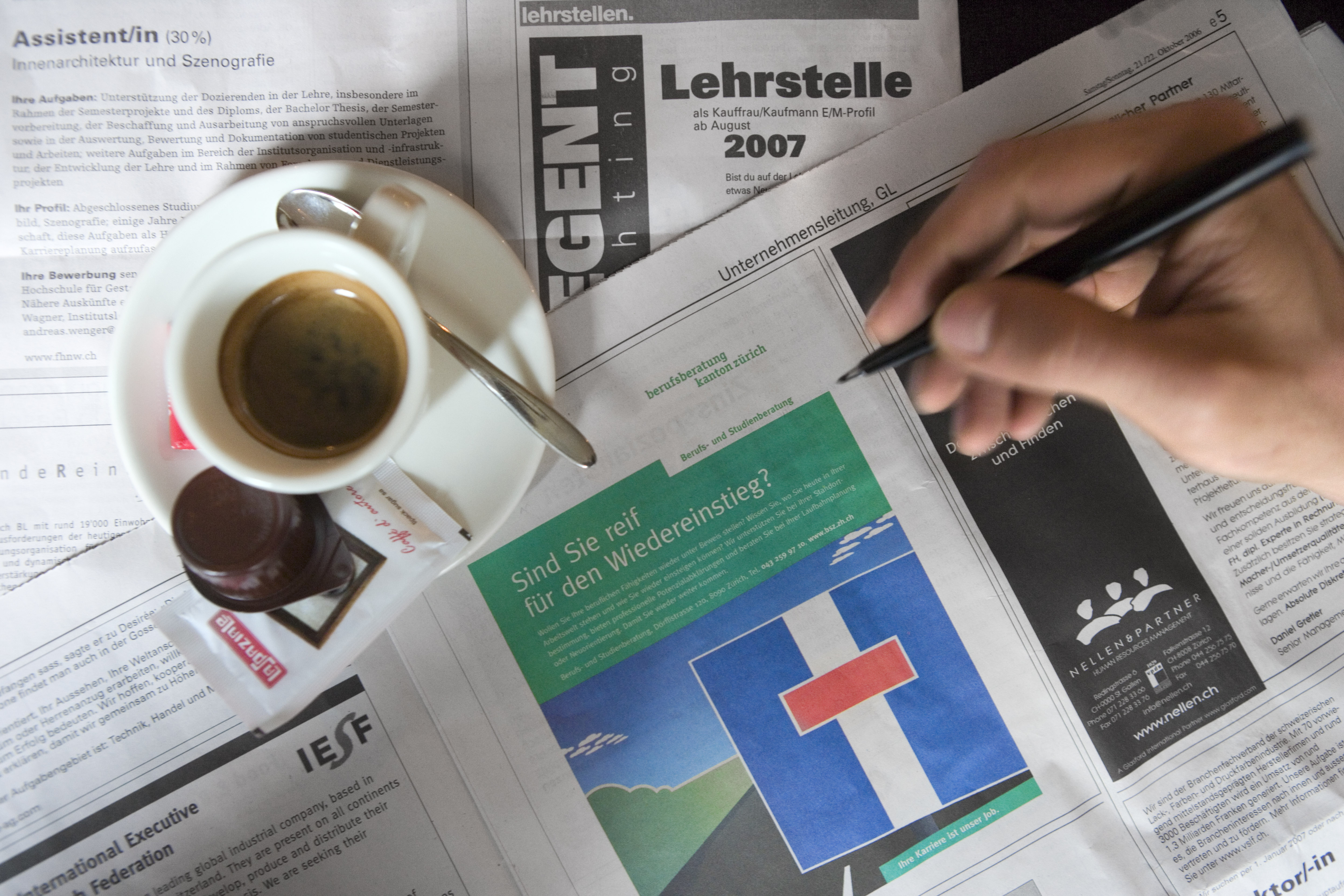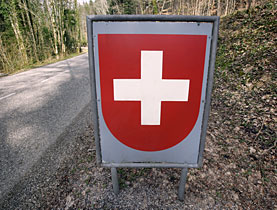Benefits of free movement scrutinised

The lifting of migration quotas for eight European Union countries on May 1 is placing the economic benefits of the free movement of people under the spotlight.
The agreement on the free movement of people between Switzerland and the EU allows EU citizens to migrate to Switzerland for an unlimited time if they have a work contract. They may also stay in Switzerland for three months without a job.
The agreement came into force in staggered intervals from 2002. In the seven months following the removal of quotas applying to the first 17 EU countries covered by the agreement in June 2007, some 48,000 new immigrants – an increase of 11.6 per cent – arrived in Switzerland.
But Martin Hirsbrunner, in charge of the free movement of people and emigration at the Federal Migration Office, told swissinfo.ch such an increase is not expected this time around.
He said existing immigration quotas applying to eight eastern European countries which joined the EU in 2004 – 30,000 short-term arrivals and 3,000 long-term arrivals – have not been filled.
“We don’t expect a big wave of workers given that the quotas haven’t been filled,” said Hirsbrunner. “Everything depends on the needs of the economy and it is not very easy to predict how that is going to develop.”
Around 60 per cent of long-term B-permit quotas had been filled, while 90 per cent of allowed short-term L-permits had been issued, he said.
Language barriers and healthy economic growth in eastern Europe had contributed to the low arrivals from these countries, Peter Lauener, a spokesman for the Swiss Trade Union Federation said.
“The economic conditions in the EU 8 are good, even very good. The workforces of these countries find work at home,” said Lauener. “And these workers are not sought after by Swiss employers – if for no other reason than that of language.”
Economic boom
Analysis by the State Secretariat for Economic Affairs (Seco) reveals that increased immigration resulting from the agreement on the free movement of people has been beneficial for the economy and has not negatively affected unemployment levels.
Following a period of stagnation and negative growth in 2002-03, the Swiss economy added some 150,000 new jobs between 2006 and 2007 and achieved GDP growth of 3.2 per cent and 3.4 per cent respectively.
“Immigration from the European area has evolved according to the needs of the Swiss economy and has thus encouraged economic growth,” Seco said in its analysis of the economic repercussions of the agreement in 2008.
“The unemployment rate has significantly decreased due to favourable economic conditions.”
Working conditions
But although the economic balance sheet resulting from increased immigration from the EU is generally positive, questions remain about the effect of the agreement on working conditions and wages.
While employers are subject to increased scrutiny of wages and conditions as a result of the introduction of the free movement of people agreement, tools to enforce sanctions on employers are insufficient, Lauener says.
And the lack of a national minimum wage means Swiss workers are not properly protected from the possibility of salary undercutting by employers looking for cheaper labour sources from elsewhere, he says.
Labour economist at Basel University, George Sheldon, says many Swiss workers are covered by agreements negotiated between employers and employees which have a “de facto minimum wage character”.
“We’ve found no negative effects on wage development here in Switzerland as the result of free movement of labour,” Sheldon said.
But the unions, along with the centre-left Social Democratic party, are calling for tougher legal measures to combat salary undercutting.
“Incontestably, there are gaps remaining and that is why it is essential to introduce the real possibility of sanctions for companies involved in wage dumping,” said Social Democrat secretary-general Thomas Christen in a blog post last week.
Christen also called for increased investment in public housing and improved rights for tenants to counter the adverse effect the free movement of people had had on affordable housing.
Under pressure
Critics of the free movement of people agreement point to increased pressures on housing and infrastructure as a reason to maintain limits on immigration.
The Environment and Population Association (Ecopop) has launched a people’s initiative calling for population growth due to immigration to be limited to 0.2 per cent annually.
“GDP has grown but not when we count it on a person-by-person basis. There are other factors as well like the amount of traffic on the highways,” Ecopop committee member Sabine Wirth told swissinfo.ch.
Secretary-general of the rightwing Swiss People’s Party Martin Baltisser says Switzerland should consider renegotiating the agreement with the EU, and at least ensure that quotas applying to the remaining two EU countries, Bulgaria and Romania, remain in place as long as possible.
“For us it is clear that the negative consequences are becoming more and more obvious,” said Baltisser.
The agreement on the free movement of people between Switzerland and the EU entered into force on June 1, 2002. Initially it applied to 15 “old” EU states, plus Malta and Cyprus, which were subject to quota limits until June 1, 2007. Citizens from Liechtenstein, Iceland and Norway benefit from a similar agreement
In 2006, the agreement was extended to include eight countries which joined the EU in 2004 – Czech Republic, Hungary, Slovenia, Poland, Slovakia, Estonia, Lithuania, Latvia – which are subject to immigration quotas until April 30, 2011.
Bulgaria and Romania, who joined the EU in 2007, were admitted to the agreement in 2009, with the possibility of quotas applicable until 2016.
Germany and Austria are also preparing to open their borders to workers from the EU 8 countries on May 1.
The two EU countries, fearful of an influx of immigrants following the countries’ adhesion to the EU in 2004, delayed for seven years opening their markets to workers from these countries.

In compliance with the JTI standards
More: SWI swissinfo.ch certified by the Journalism Trust Initiative





You can find an overview of ongoing debates with our journalists here. Please join us!
If you want to start a conversation about a topic raised in this article or want to report factual errors, email us at english@swissinfo.ch.